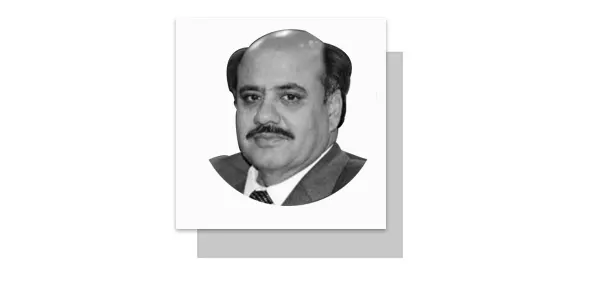PAKISTAN is on the brink of a significant economic upturn, capitalizing on its professed $8 trillion worth of untapped critical minerals potential.
This potential is not just a figure on paper, but a real opportunity to increase GDP growth and stabilize the economy.
The country has convened an investment forum to showcase Pakistan’s mineral potential, attract foreign direct investment and position itself as a key player in the global mining supply chain.
The overwhelming participation of foreign and local investors has germinated a sense of optimism about the mega-investment in Pakistan’s mineral sector.
Pakistan’s unique geological condition and mineral potential make it a compelling destination for foreign and local mineral and metal investors.
OGDCL Managing Director and CEO Ahmed Hayat Lak pointed out, “Pakistan is not just mineral-rich but investor-ready.
” He sounds correct because the country is endowed with an outcrop area of 600,000 square Kilometers containing 92 known minerals of which 52 are commercially mined.
These include a diverse range of minerals such as coal, copper, gold, chromite, lead, zinc, antimony, titanium, rare earth elements, magnesium, mineral salt and more, making Pakistan a treasure trove for the discerning investor.
The worsening security situation in Balochistan and Khyber Pakhtunkhwa provinces, where many mineral reserves are located, disdains expectations.
Moreover, the dearth of skilled workforce, apathetic approach towards vocational institutions and lack of coordination between academia and industry are frustrating obstacles to tapping the mineral potential.
The Pakistan Minerals Investment Forum 2025 (PMIF-25) was organized by the Oil and Gas Development Company Limited (OGDCL) in collaboration with the Special Investment Facilitation Council (SIFC), Ministry of Energy (Petroleum Division), Barrick, Pakistan Petroleum Limited, Government Holdings (Private) Limited, Pakistan Minerals Private Limited, Frontier Works Organisation, Mari Energies and Reko Diq Mining Company organized at the Jinnah Convention Centre in Islamabad on April 8-9, 2025.
The two-day forum was attended by over 2,000 participants, including more than 300 delegates from countries such as China, the United States, Saudi Arabia, Russia, Turkeyie, Kenya and Finland.
The Government announced the country’s investor-friendly National Minerals Harmonisation Framework (NMHF) 2025.
The remarkable feature of the framework is that Pakistan only exports semi-finished and finished mineral products rather than shipping raw material abroad.
Indeed, this policy will have long-term dividends, such as grasping modern extraction, processing and equipment manufacturing technologies, creating a skilled workforce and creating more jobs in the country.
Deputy Prime Minister, Ishaq Dar, while launching the NMHF-2025, said Pakistan is strategically positioned to emerge as a global mining powerhouse due to its rich geological landscape, including world-class deposits such as Reko Diq and untapped reserves of rare earth elements and gemstones.
He sounds realistic because Reko Diq, located in the Chaghai district, is among the world’s most significant undeveloped copper-gold projects.
Fostering synergy between the federal and provincial governments to constitute and execute inclusive mineral policy, the Federal Government asked the Azad Jammu & Kashmir (AJK) and Gilgit-Baltistan (GB) to enact the Mines and Minerals Act, 2025.
According to the 1973 Constitution of the Islamic Republic of Pakistan, the provincial governments are vested with the executive and regulatory authority to develop mineral resources, excluding mineral oil, natural gas and resources necessary for nuclear energy generation.
Hence, the provincial, AJK and GB legislation will harmonize the regulatory framework in Pakistan’s minerals sector.
Prime Minister Shahbaz Sharif opined that adequate exploration and export of real minerals by the country reduce its dependence on multilateral lenders like the IMF.
The critical question is how to rationalize mineral wealth.
Despite immense mineral resources, the mineral sector’s contribution to the national economy is insignificant, i.e., nearly 2.51% contribution to the GDP growth of Pakistan due to incompetence in managing mineral wealth effectively.
Admittedly, establishing a whole-of-the-government (civil-military) run Special Investment Facilitation Council (SIFC) in June 2023 and the commencement of PMIF-25 were industrious initiatives.
Realistically, the materialization of the mineral enterprise requires the immediate restoration of the state’s writ in the restless districts of Balochistan and the KP.
Besides security, investors need skilled labour for the country’s semi-finished and finished mineral products.
Therefore, the earnest need is to increase the vocational training centers and their capacity across the country to equip Pakistani youth with the technical expertise required for modern mining and processing.
This is not just a need but a call to action for the OGDCL, relevant ministries and organizations to devise and implement educational strategies with the assistance of the faculties of leading universities, including Quaid-i-Azam Universit (QAU).
Since 1973, the Department of Earth Sciences, QAU, has produced qualified, trained human resources in specialized areas of Geophysics and Geology.
It is the only teaching institute in Pakistan that awards degrees (BSC, M.Phil & Ph.D.) in Geophysics.
Its graduates have proved their worth in exploring natural resources, particularly oil and gas, minerals and groundwater.
Thus, the financial and material investment to enhance research and development in the realm of real minerals capacity building is the fundamental responsibility of the incumbent government.
To conclude, NMHF-2025’s execution will attract a substantial flow of foreign direct investment, improve hard currency earnings, increase government revenues, enhance job opportunities, improve education and skills development, and develop the country’s infrastructure.
—The writer is Prof at the School of Politics and IR, Quaid-i-Azam University. (jaspal_99@hotmail.com)


















